Examining Lebanon’s Resilience Through a Water-Energy-Food Nexus Lens
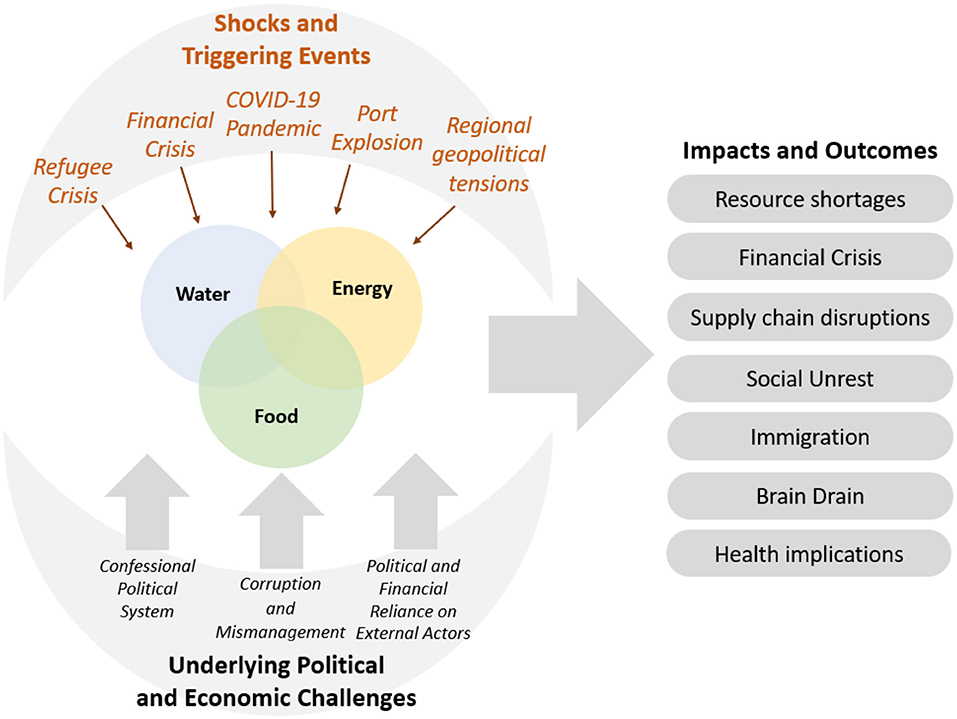
Lebanon faces a mix of underlying political and economic challenges, shocks, and triggering events that threaten the sustainability and resilience of its interconnected resource systems. The complex nature of these pressures begs for a systems approach to better understand the existing interconnections and to support the co-creation of cross-sectoral solutions to address them. This article […]
Toward Resilient Water-Energy-Food Systems under Shocks: Understanding the Impact of Migration, Pandemics, and Natural Disasters
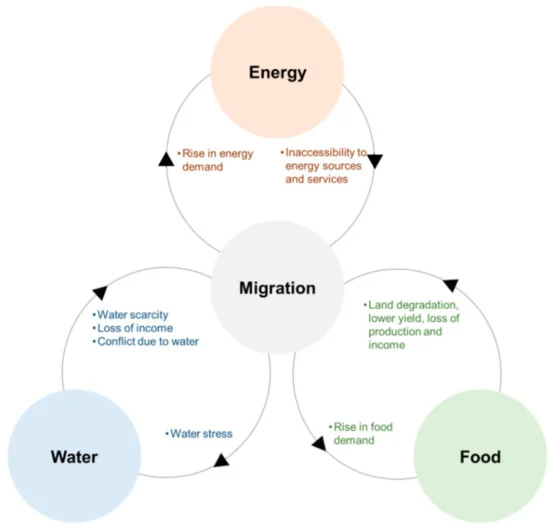
The historic pandemic faced by the international community today boldly demonstrates the complexity and interconnectedness of the resource challenges we must better understand and address in the future. Further complexity is observed when accounting for the impact of compounded shocks related to natural disasters and forced migration around the world. Effectively addressing these challenges requires […]
Toward creating an environment of cooperation between water, energy, and food stakeholders in San Antonio

The San Antonio Region is home to a rapidly growing population with developing energy and agricultural sectors competing for water, land, and financial resources. Despite the tight interconnectedness between water, energy, and food challenges, little is known about the levels of communication and coordination among the various officials responsible for making the decisions that affect […]
Evaluating the Potential of a Water-Energy-Food Nexus Approach toward the Sustainable Development of Bangladesh
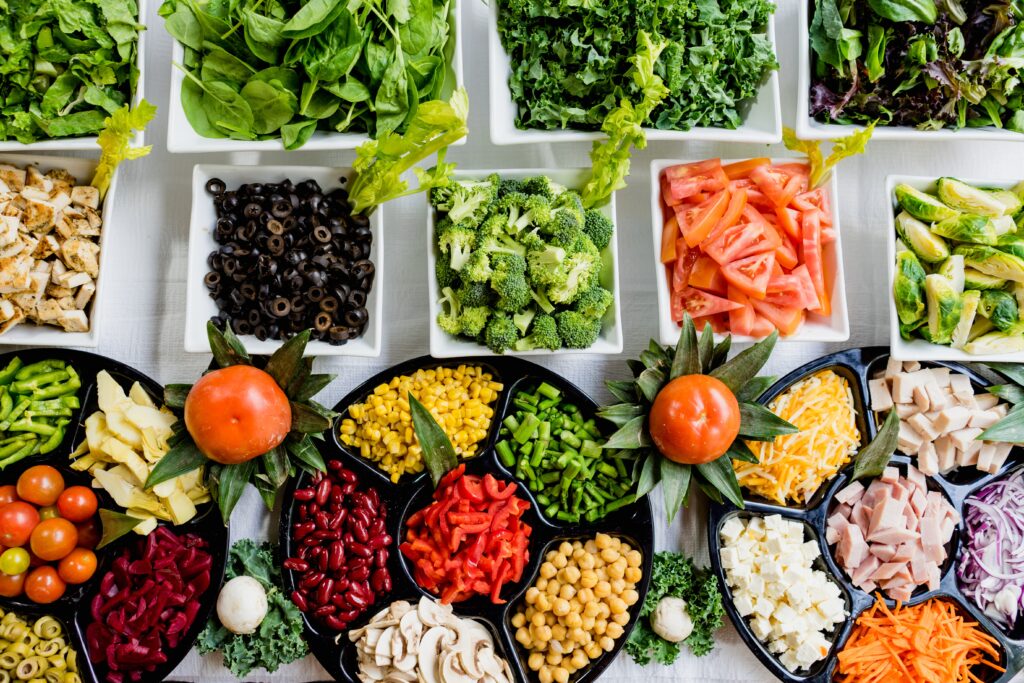
In pursuit of continuous economic development, Bangladesh has undertaken long-term plans to boost its productivity in the agriculture, energy, and industrial sectors and to align with the United Nations Sustainable Development Goals (SDGs). Unless these strong interconnections and cross sectoral impacts are recognized, achievement of the future policy goals and national priorities of the concerned […]
Water–energy–food (WEF) Nexus Tool 2.0: guiding integrative resource planning and decision-making

The paper introduces a framework and set of methodologies that define the linkages between the interconnected resources of water, energy and food, and enable explicit corresponding quantifications. The paper presents a new water–energy–food (WEF) Nexus modelling tool (WEF Nexus Tool 2.0) based on that framework which offers a common platform for scientists and policy-makers to […]
Water-Energy-Food Nexus Framework for facilitating multi-stakeholder dialogue

“Link to full article”
Governance of the Water-Energy-Food Nexus: the Conceptual and Methodological Foundations for the San Antonio Region Case Study

Purpose of Review The goal of the case study is to provide an outline of the “governance” group’s approach to conducting research on nexus issues in this case study. Recent Findings A significant part of the Texas A&M Water-Energy-Food Nexus initiative focuses on issues of governance and public policy. The governance and public policy element […]
Beyond zero sum game allocations: expanding resources potentials through reduced interdependencies and increased resource nexus synergies
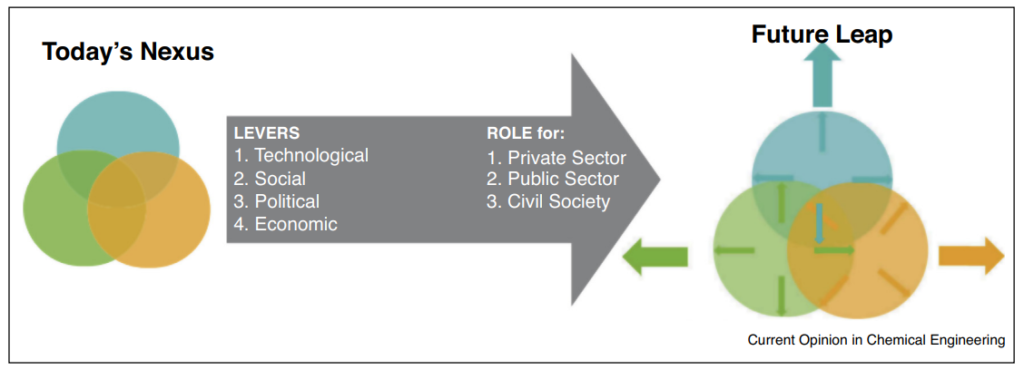
The 2030 goal for the implementation of the Sustainable Development Goals (SDGs) gives rise to challenging questions stemming from the inherent interconnections and potential competition between primary resources. ‘Economic Growth’ and ‘Clean Water and Sanitation’ are intimately related SDGs. Access to quality water is critical to growth, but as economies and populations grow, so does […]
Trade-offs and Decision Support Tools for FEW Nexus-Oriented Management
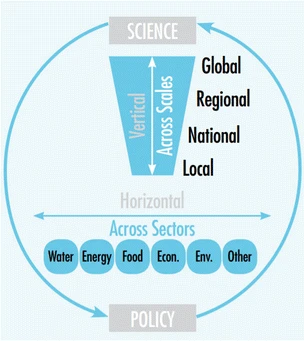
Purpose Existing assessment and decision support tools have limited application to real-world food-energy-water (FEW) Nexus challenges. Integrated assessment approaches are often discipline-specific or highly theoretical, lacking grounding in real-world FEW issues. Recent Findings FEW systems require application of integrated techniques that address multiple attributes of trade-off analyses, dynamic and disparate datasets, and difficult decision contexts. […]
Water–energy–food nexus: a platform for implementing the Sustainable Development Goals

This high- level panel was partially supported by the Texas A&M WEF Nexus Initiative, BMZ, European Union, and respective co-author institutions (American University of Beirut, OCP Policy Center, University of Zaragoza, Global Environmental Facility, Circle of Blue, Stockholm Environment Institute, National Scientific and Technical Research Council, International Commission on Irrigation and Drainage, World Bank, and […]